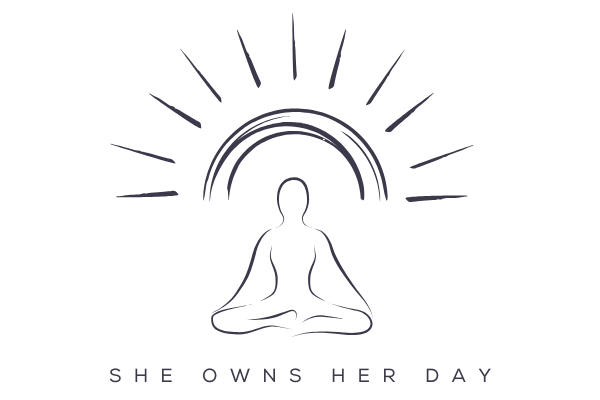Life After Mirena IUD Removal: 4 Things to Expect
It’s been a year and a half since my Mirena IUD removal and the journey has been eye-opening. After using Mirena for about five years, I decided to have it removed to rebalance my hormones and reconnect with my natural cycle.
Along the way, I’ve learned a lot about the process, my body, and my emotions—and I’m here to share insights that may help you on your own journey.
If you’re considering Mirena IUD removal or navigating life after hormonal birth control, this post is for you.

My Mirena IUD Removal Experience
When I got my Mirena IUD, I loved the convenience of not having periods, but over time, I started feeling disconnected from my body. I wanted to embrace my natural cycle again and understand how my body functioned without hormonal influence.
If you’re thinking about removal but feel hesitant, know that I felt the same. Truthfully, I would have removed it sooner, but the painful memory of insertion held me back. Before having it inserted, I took pain medication as advised to manage what was described as “minor discomfort.” However, the pain I experienced was far from minor. It was so intense I nearly jumped off the exam table—it was a deeply traumatizing experience that left me apprehensive about the removal process.
When I finally had the IUD removed in July 2023, the process was much less painful than I feared—thank goodness! If you’re worried about discomfort, talk to your doctor about how to make the experience easier for you.
Reconnecting With My Cycle
After my Mirena IUD was removed, it took time for my period to return. Now, 18 months later, I’ve fully embraced relearning my body’s natural rhythms and sensations throughout my monthly cycle. There’s something so empowering about understanding and working with your body rather than suppressing it. I love being a woman!
Hormonal Changes After Mirena IUD Removal
Over the past year and a half, I’ve also noticed dramatic changes in my hormones and emotions. One of the most significant shifts I experienced after Mirena IUD removal was in my emotional health. While using Mirena, I often felt overly emotional and reactive to everyday situations. Anxiety was a constant companion, and my coping skills weren’t at their best.
Since the removal, I feel calmer and more grounded. Although I’ve made other lifestyle changes that likely contribute to this shift, it’s worth considering how hormonal birth control might impact emotional well-being.
What to Expect After Mirena IUD Removal
- Your Period May Take Time to Return:
It took several months for my cycle to normalize. This is common as your body adjusts to the absence of synthetic hormones. Be patient and track your symptoms using a period app or journal. - Hormonal Shifts Are Normal:
After removal, as I mentioned, I noticed significant emotional and hormonal changes. For me, this meant feeling calmer and less reactive over time. However, some women may experience temporary mood swings, acne, or other symptoms as their body rebalances. - Lifestyle Changes Can Help:
Supporting your body during this transition can make a big difference. Focus on:- Nutrition: Prioritize whole foods, healthy fats, and nutrient-dense meals to support hormone regulation.
- Exercise: Gentle, consistent movement like yoga, walking, or strength training can reduce stress and improve overall well-being.
- Stress Management: Practices like meditation, deep breathing, or journaling can help regulate emotions and reduce anxiety.
- Track Your Progress:
Keeping a journal or using a health app to document your symptoms, emotions, and cycle changes can provide valuable insights. This data can also help your doctor pinpoint issues if you have concerns.
How To Decide If Mirena IUD Removal Is Right For You
While the Mirena IUD worked well for me for several years, it’s important to recognize that no birth control method is perfect. Here are some questions to ask yourself:
- Do I feel like my current birth control is working for me, or do I have concerns about side effects?
- Have I noticed changes in my mental, emotional, or physical health that might be linked to my IUD?
- Am I ready to explore alternative birth control methods, or do I want to embrace my body’s natural cycle?
Navigating Life After Mirena IUD Removal
If you’re planning to remove your Mirena IUD, here are some tips:
- Communicate with Your Doctor:
Share your concerns, and ask about what to expect during removal and afterward. If pain is a concern, your doctor may have options to make the process more comfortable. - Prepare for Hormonal Fluctuations:
Hormones can take time to regulate. Be kind to yourself, and know that symptoms like irregular cycles, mood changes, or breakouts are often temporary. - Consider Alternative Contraceptives:
If you’re not ready to go hormone-free, discuss other birth control options with your doctor, such as the copper IUD or barrier methods, like condoms or dental dams. - Focus on Self-Care:
Support your body through the transition with nourishing foods, plenty of hydration, and rest.
A Balanced Perspective on Birth Control
Let me be clear: I’m a strong advocate for birth control and the autonomy it gives women. It’s an invaluable tool for managing reproductive health, and I’m grateful it was available to me. But it’s also essential to recognize that birth control isn’t a one-size-fits-all solution.
If you’re using any form of hormonal birth control, take the time to monitor how your body responds over time. Are you noticing changes in your mental, emotional, or physical health? If something feels off, don’t hesitate to bring it up with your doctor. Your health is worth the conversation.
Final Thoughts on Mirena IUD Removal
Eighteen months after removing the Mirena IUD, I feel more connected to myself than ever. I’ve learned to embrace my body’s natural cycle, regulate my emotions, and appreciate the power of hormonal balance. This journey has been about more than just birth control—it’s been about reconnecting with my body and trusting its wisdom.
If you’re considering Mirena IUD removal, remember: this is your body and your choice. Take the time to evaluate what’s best for you, advocate for your health, and don’t hesitate to seek support when you need it.
More Actionable Tips & Resources
- Stress-Reduction Techniques: Explore mindfulness apps like Headspace or Calm for daily practices that promote emotional balance.
- Tools to Track Your Cycle: Apps like My Calendar – Period Tracker, Flo, or a simple journal can help you observe your body’s natural patterns.
- Nutrition for Hormonal Health: Incorporate foods like leafy greens, avocados, and omega-3-rich sources (salmon, flaxseeds) to support hormone regulation.
Your next chapter awaits. Here’s to health, empowerment, and living in harmony with yourself!
XO,







